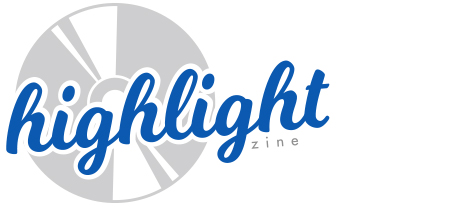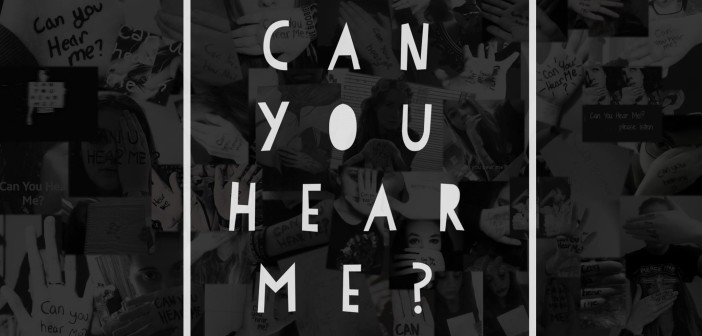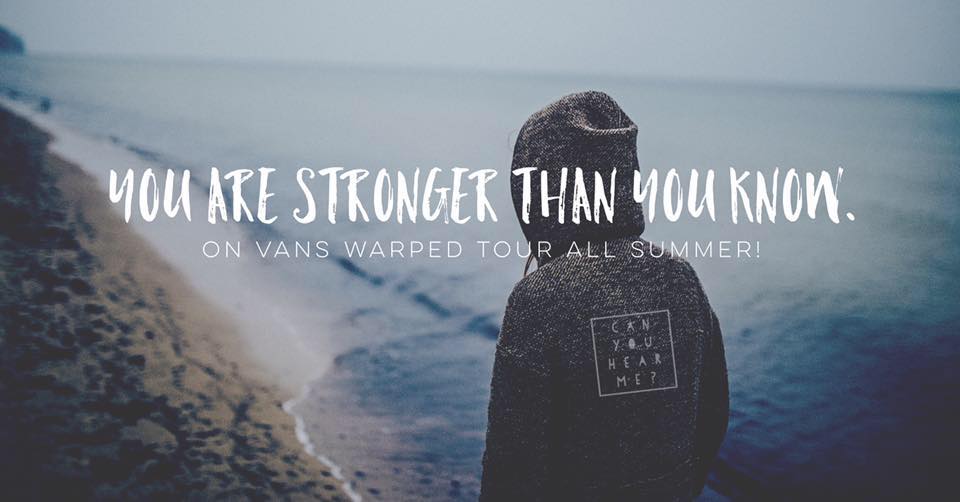Can You Hear Me?
Words & Interview: Jen Boylen
One in five teenagers has, or will have, a serious mental illness ranging from depression, personality disorder, anxiety and more. Suicide is the 2nd leading cause of death in people from ages 15-24, and 90% of those who commit suicide will have suffered from a mental illness (statistics from the National Alliance on Mental Illness).
How much of that 90% actually shared their struggle? What if there was a place for young people to share their stories, be heard, and find help? Can You Hear Me? has made it their mission to be that outlet for those who are struggling. Founded in 2015, CYHM? aims to give teens and young adults a forum to express their own thoughts, opinions, goals, concerns, and fears and be heard (anonymously if they wish) without judgment, fear or the negative backlash often associated with online posting. The organization will be out on Warped Tour this summer giving attendees a chance to tell their stories and Highlight sat down with co-founder Ashley Adler Coro to hear all about it.
Can you give us some background on how CYHM? got started?
When I was 14, my family lost my cousin Thomas to suicide-he was only 18. Since then we’ve been trying to do something in his memory, or in his honor, and bring awareness. There’s so much that surrounds suicide and people don’t like to talk about it, but we couldn’t figure out a way to do anything. Fast forward to now, my brother had gone into recovery for addiction. My mom was talking to him and he was trying to convince her as to why he should come home from California. She already had a preconceived idea of what he was going to say and what she was going to say to him and he was like ‘I need you to stop. I need you to just listen and hear me. I need you to hear what I have to say because these are the reasons I need to come home.’ She kind of took that and called me immediately the next day. I was just getting off Warped Tour because I was on with Music Saves Lives last summer, and I already had an idea that I wanted to start a non-profit or a movement or something to help kids because I saw the need out there. We both had the same exact idea at the same time and that’s how [Can You Hear Me?] was born. We were like, ‘This is what we’re going to do. We’re going to help kids and get to it before it gets bad and give kids a place to speak up and be heard and not allow any judgement or bullying. We’re going to try and save kids.’
In your mission, you stress creating a safe environment online, when many times online communities can be the opposite. Can you describe why that aspect is so important?
I think so many times kids will actually try to speak up on Facebook or wherever. They just try to do something, trying to be themselves and trying to get out what they’re feeling. They’re almost immediately met with some sort of negativity or somebody immediately will say something bad to them and we were like, ‘You know what, this is everything that is wrong with the world.’ We can’t change the way kids are talking, that’s how they’re going to talk. They’re going to use social media and they’re going to text, but we can change the reactions. We can change the way people interact with them or don’t allow them to interact with them because then there’s no way for anyone to get bullied and there’s no way for these kids to get torn down just trying to get help and get the word out there.
One of my team members and I actually did a social experiment about this. We went on to Periscope and almost instantly there were people on there saying the worst things and I was like, ‘Wow, this is what kids are met with every single day.’ You can’t get on the Internet without some sort of negativity so that’s why we stress the no commenting, no judging to make it somewhere safe. They are using the Internet and that’s how they’re talking, who are we to tell them that that’s not right? So we want to make it a safe place.
You’ve partnered with musicians and people of the like to spread your message. Why did you choose that route?
I know that when I was younger, when I was a teenager, I struggled with depression, and music was pretty much the only [thing]that could reach me and that I could use as an outlet. Music has this ability to just connect people and break those walls that kids put up. Going through music is a way for us to have a way to reach the kids because that’s something that connects everyone; it’s universal. It’s our way of showing ‘look some of your favorite artists are sharing their stories and they’ve gone through similar things that you have, you’re not alone.’ This is something that everyone goes through and connecting them with musicians is another way to help them speak up.
You’ll be on Warped Tour this summer with a tent, a bus and a recording studio for people to be able to tell their stories. Can you tell us how this endeavor came to fruition?
When we were brainstorming what we were going to do out there, what our activation would be, I thought why don’t we give them a place to record right there at Warped Tour. It’s all the right demographic, and they all have something to say. So we’re bringing out this company Picture Booth, that’s how we’re recording, and we have an air-conditioned tent for this so not only do the kids get to speak their minds and tell us their story, but they get to be in air conditioning for a couple minutes at least. I think that will be a huge draw. I think just having that interactive aspect at our tent was really important to us.
You’ll also be hosting a sober bar at the nightly barbecues. Why was that an important aspect for you guys?
Were going to have cold pressed juice for some of the dates. We’re also bringing lemonade and iced tea and we’re just giving a different option other than alcohol. There are bands and crew members out there who are in recovery or straight edge and don’t really have that option, so we’re going to make our own little table which has those options for them so they are able to enjoy the barbecues as well.
How do you hope to grow from here?
We are hoping to eventually go into schools and talk about different ways to ask for help. Just teaching about what we’re doing and giving them that outlet. We hope to continue going out on Warped Tour and we’re building a phone application. We’re creating this sort of mental health social media platform for kids, and it will be sort of the same feel as our website, but it will be easier to access. Every kid has a phone, and they’ll be able to get on their phones and maybe share their story there or they can share an inspirational quote or good advice or something like that. It’s a really uplifting social media platform so it’s something completely different from what is there right now.
Anything else?
We’ve been getting so much support, it blows my mind honestly because we had no idea how many people needed something like this so it’s amazing to have support.
Can You Hear Me? has released a special edition Pride Tee, which can be purchased here. All proceeds are being donated to the Pulse Victims fund.





